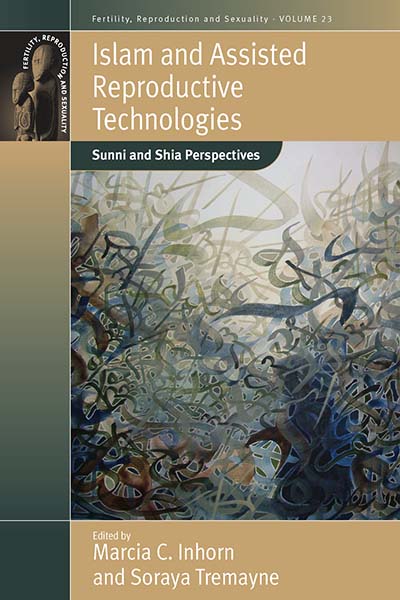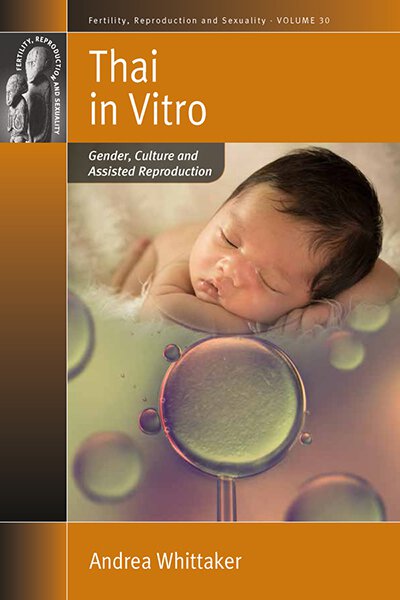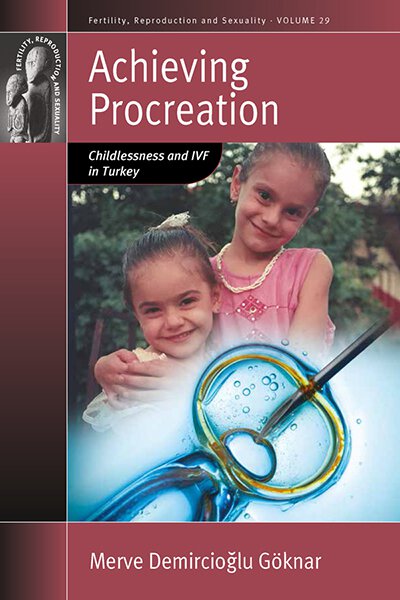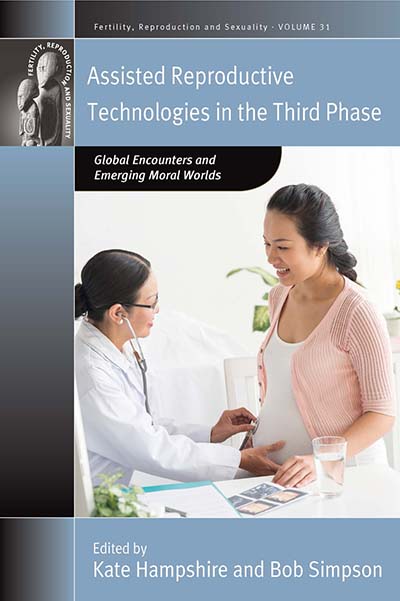
Series
Volume 23
Fertility, Reproduction and Sexuality: Social and Cultural Perspectives
See Related
Anthropology JournalsEmail Newsletters
Sign up for our email newsletters to get customized updates on new Berghahn publications.
Islam and Assisted Reproductive Technologies
Sunni and Shia Perspectives
Edited by Marcia C. Inhorn and Soraya Tremayne
346 pages, 4 tables and figures, bibliog., index
ISBN 978-0-85745-490-4 $135.00/£104.00 / Hb / Published (July 2012)
ISBN 978-1-78533-045-2 $34.95/£27.95 / Pb / Published (September 2015)
eISBN 978-0-85745-491-1 eBook
Reviews
“It is to the editors’ credit that they have been able to harness these diverse angles in such a way that the whole in fact emerges as more than its parts. ARTs and the problem of third-party donation within Islam speak to more overarching issues of policy, modernity, gender, rights, and social change… In its sensitivity to discrepancies between norms and practice, the volume not only contributes knowledge to the field of ARTs and procreative practices more generally, indicating a socio-political religious complexity that is not easily disentangled. It also and perhaps more importantly enhances our knowledge of Islam, while encouraging a continual comparative perspective.” · The Journal of the Royal Anthropological Institute
“Readers looking for an overview of the different policies and perspectives on assisted reproductive technology (ART) will discover many interesting facets to these issues in the Middle East…Students of assisted reproductive technology in Europe and America will also find much to learn from in this book. The chapter that compares the Catholic hierarchy’s response to ART issues with those of Muslim leaders gives a fresh perspective to the longstanding debates… It is fascinating to read about another religious tradition, just as rich as Catholicism, being used creatively to respond to new situations unforeseen by earlier leaders.” · Conscience
“This pioneering volume offers a robust contribution to the fields of medical anthropology and religious studies. It historicizes ARTs within Sunni and Shia Islamic traditions while situating grounded results within a broad comparative ethnographic framework… Because [it] initiates a new theoretical repertoire for critical medical anthropologists and scholars of Islam, this book proves to be a much-needed theoretical springboard for anthropologists interested in issues regarding human life itself—from children’s rights to technoscience to neoliberal regimes and subjectivities.” · American Ethnologist
“This groundbreaking volume is highly likely to become a point of departure for all future engagements with biotechnologies in the Middle East. The collection expertly reveals in vivid detail the ‘local moral worlds’ of ‘biotechnologies of life’ within the Islamic landscape. Unprecedented and unique, this book challenges both popular misconceptions and academic gaps in knowledge vis-à-vis new developments in bioscience and technology from theocratic Iran to secular Turkey.” · Aditya Bharadwaj, University of Edinburgh
Description
How and to what extent have Islamic legal scholars and Middle Eastern lawmakers, as well as Middle Eastern Muslim physicians and patients, grappled with the complex bioethical, legal, and social issues that are raised in the process of attempting to conceive life in the face of infertility? This path-breaking volume explores the influence of Islamic attitudes on Assisted Reproductive Technologies (ARTs) and reveals the variations in both the Islamic jurisprudence and the cultural responses to ARTs.
Marcia C. Inhorn is the William K. Lanman, Jr. Professor of Anthropology and International Affairs in the Department of Anthropology, and The Whitney and Betty MacMillan Center for International and Area Studies at Yale University.
Soraya Tremayne is the Founding Director of The Fertility and Reproduction Studies Group, and a Research Associate at the Institute of Social and Cultural Anthropology, University of Oxford.
Other Berghahn titles by Marcia C. Inhorn
Reproductive Disruptions: Gender, Technology & Biopolitics in the New Millennium (2007)
Assisting Reproduction, Testing Genes: Global Encounters with the New Biotechnologies (co-edited with Daphna Birenbaum-Carmeli, 2009)
Reconceiving the Second Sex: Men, Masculinity & Reproduction (co-edited with Tine Tjørnhøj-Thomsen, Helene Goldberg & Maruska la Cour Mosegaar, 2009)
Other Berghahn Titles by Soraya Tremayne:
Fatness and the Maternal Body: Women's Experiences of Corporeality and the Shaping of Social Policy (co-edited with Maya Unnithan-Kumar, 2011)
Women As Sacred Custodians of the Earth? Women, Spirituality and the Environment (co-edited with Alaine Low, 2001)
Managing Reproductive Life: Cross-Cultural Themes in Fertility and Sexuality (2001)




